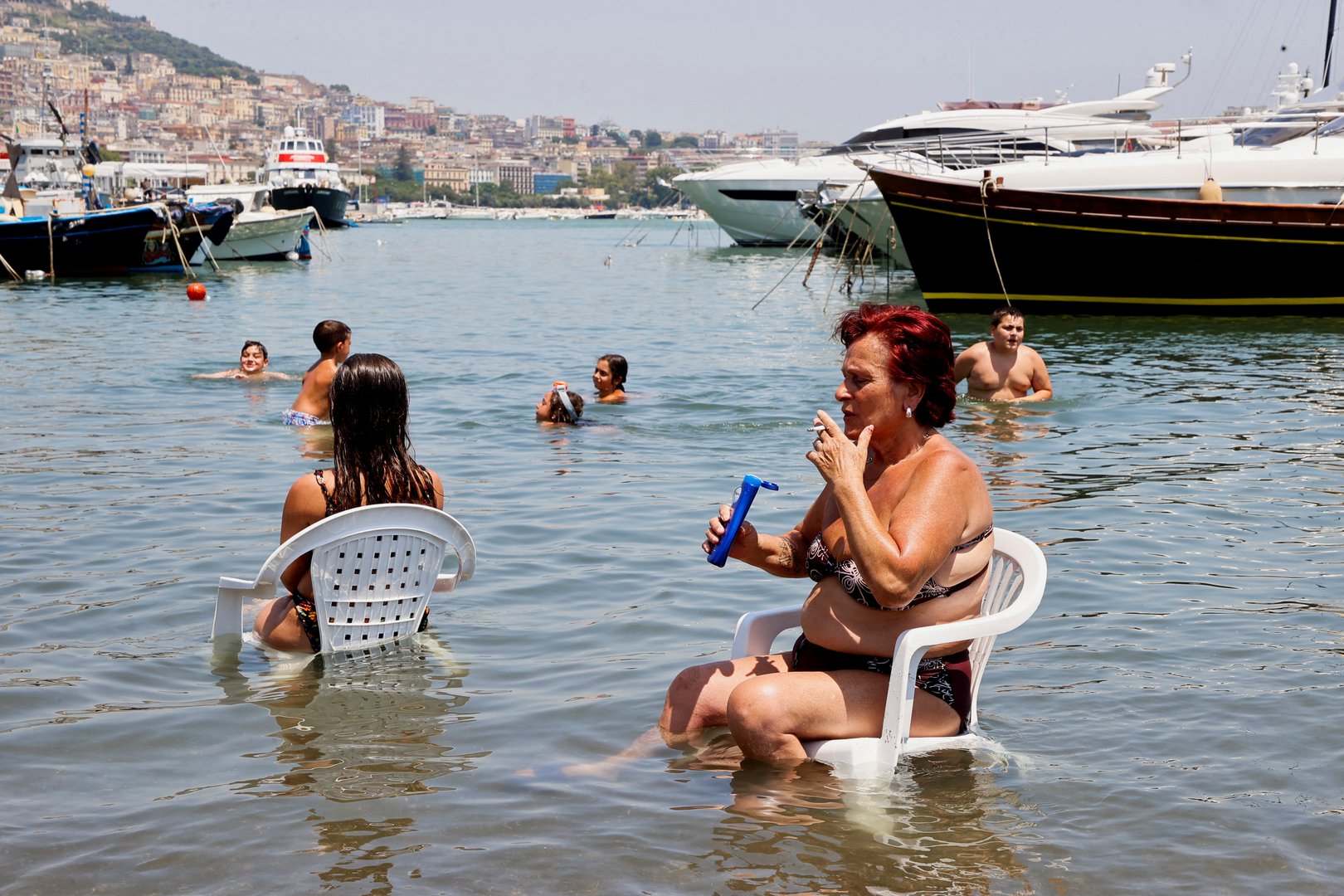The met office has issued a yellow warning of extreme high temperatures for Thursday with the “Cleon” heatwave set to hit Cyprus.
Temperatures are expected to reach as high as 43 degrees inland, while even the highest mountainous areas on the island could see temperatures as high as 36 degrees.
The heatwave previously impacted southern France, southern Italy and the islands of Sardinia and Corsica.
Met office director Kleanthis Nicolaides said the heatwave is set to last in Cyprus until Saturday, and that it will also impact much of Greece.
He added that the heatwave had been given a name as it is affecting a large area of the Mediterranean, and that the name, Cleon, was taken from a prepared list agreed by the met offices of Cyprus, Greece and Israel.
People in Nicosia wishing to shelter from the heat will be able to visit the Municipality’s heat shelter at the municipal multipurpose centre near the Famagusta Gate in the walled city.
The centre will be open on Thursday and Friday between 9am and 6pm, and will remain open on Saturday and Sunday if the heatwave continues to impact Cyprus.
The Limassol municipality have also announced that their adult activity centre will be open between 7am and 7pm on Thursday and Friday for people looking to shelter from the heat.
The heatwave arrives in Cyprus amid record-breaking temperatures globally. July 4 was the hottest day ever recorded globally, while this June was the hottest June across the globe since records began.
Rising temperatures are the most obvious symptom of climate change being felt in Cyprus, and comes just weeks after Environment Commissioner Maria Panayiotou said the effects of climate change are leaving “catastrophic consequences for ecosystems, communities and our economy,” felt in Cyprus and across the world.
Scientists agree with Panayiotou that Cyprus will be faced with a dire human health impact, with both direct and indirect consequences predicted to affect the island.
Direct consequences include more prevalent wildfires, as seen in the north last year when the villages of Flamoudi and Ardana were evacuated as a large wildfire threatened to wipe the villages out.
Indirect consequences, the scientists said, include the northward migration of animals such as mosquitoes, which could bring with them potentially harmful diseases.
This, too, has already been observed on the island, with the Larnaca municipality currently attempting to sterilise a new invasive species of mosquito which is known to transmit diseases such as dengue, yellow fever, chikungunya, zika and West Nile viruses.







Click here to change your cookie preferences